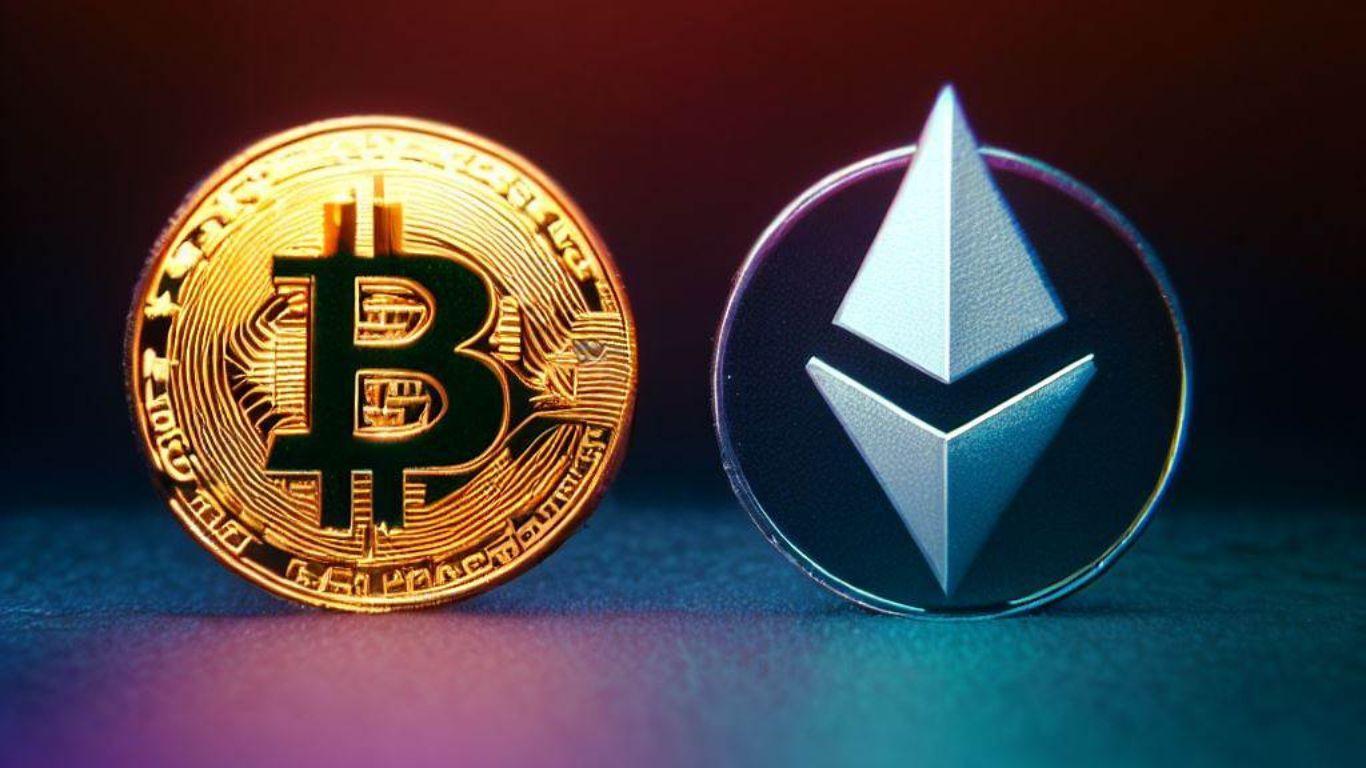
In an exciting turn of events, Bitcoin is emerging as a formidable contender to Ethereum’s dominance in the NFT market. The world’s largest cryptocurrency by market capitalization is venturing into the world of non-fungible tokens (NFTs), gaining traction and challenging Ethereum’s long-standing position as the go-to blockchain for NFTs. This shift is reshaping the blockchain landscape, paving the way for new possibilities in Web3 culture and revolutionizing the way we perceive and engage with digital collectibles.
While Ethereum has been the primary blockchain for NFTs, Bitcoin’s entry into this space signifies a significant milestone. With its robust infrastructure and vast user base, Bitcoin has the potential to bring mainstream attention to the NFT market and introduce a wider audience to the world of digital collectibles. This move also diversifies the ecosystem, offering creators and collectors alternative options to explore.
Bitcoin’s allure lies in its established reputation and widespread adoption. As a tried-and-true cryptocurrency, Bitcoin brings a sense of stability and reliability to the NFT market. This factor holds appeal for both artists and collectors, who seek a secure and trusted platform to transact and showcase their digital artworks. By leveraging the Bitcoin blockchain, artists can tap into a larger pool of potential buyers, boosting exposure and potentially increasing the value of their NFT creations.
Moreover, Bitcoin’s foray into the NFT realm contributes to the broader narrative of Web3 culture. Web3 represents the next generation of the internet, emphasizing decentralization, ownership, and user empowerment. NFTs align perfectly with this vision, as they enable digital assets to be owned, traded, and valued in a decentralized manner. With Bitcoin actively participating in the NFT ecosystem, the culture of Web3 is further solidified, highlighting the possibilities of a decentralized future.
The expansion of Bitcoin’s role in the NFT market also has implications for NFT culture. As NFTs continue to gain popularity, their impact reaches beyond the realm of art and collectibles. NFTs have the potential to disrupt various industries, including music, gaming, virtual real estate, and more. Bitcoin’s involvement brings additional attention and resources to these sectors, fueling innovation and fostering the growth of new use cases for NFTs.
While Ethereum’s blockchain has long been associated with NFTs due to its smart contract capabilities, Bitcoin is not far behind. Bitcoin is evolving through layer-two solutions, such as the Lightning Network, which enhances its scalability and transaction speed. These developments make Bitcoin a viable and attractive option for NFT creators and collectors, offering a new playground for artistic expression and digital ownership.
As Bitcoin’s presence in the NFT market grows, the competition with Ethereum intensifies. Both blockchains offer unique strengths and attributes, and the choice between them becomes a matter of personal preference, project requirements, and community support. This healthy competition drives innovation and ensures that the NFT market remains dynamic and adaptable.
Bitcoin’s established reputation and widespread adoption bring a sense of stability and trust to the NFT market. Artists can leverage the Bitcoin blockchain to tap into a larger audience, expanding their reach and potentially increasing the value of their digital creations. Moreover, Bitcoin’s involvement solidifies the culture of Web3, emphasizing decentralization, ownership, and user empowerment.
The expansion of Bitcoin’s role in the NFT market extends beyond the realm of art and collectibles. NFTs have the potential to revolutionize various industries, including music, gaming, virtual real estate, and more. With Bitcoin actively participating in the NFT ecosystem, these sectors receive additional attention and resources, fostering innovation and paving the way for new use cases.
As Bitcoin and Ethereum compete for dominance in the NFT space, healthy competition drives further innovation, ensuring the continuous growth and adaptability of the market. Creators, collectors, and enthusiasts can look forward to an exciting future where blockchain technology and digital art converge, transforming the way we perceive, value, and engage with digital assets.
With Bitcoin emerging as a strong contender to Ethereum in the NFT market, the blockchain landscape becomes more diverse and dynamic. The convergence of Bitcoin and NFTs not only expands opportunities for artists and collectors but also propels the evolution of Web3 culture and the decentralized revolution. As we navigate this evolving landscape, the potential for creativity, collaboration, and digital ownership is boundless, making the future of NFTs and blockchain technology a truly exciting prospect.
In conclusion, the entry of Bitcoin into the NFT market marks a significant milestone in the blockchain landscape. As the world’s largest cryptocurrency, Bitcoin’s foray into the world of digital collectibles brings newfound attention, diversification, and potential for innovation. While Ethereum has long been associated with NFTs, Bitcoin’s entry disrupts the status quo, offering alternative opportunities for creators, collectors, and enthusiasts.
Get the latest Crypto & Blockchain News in your inbox.